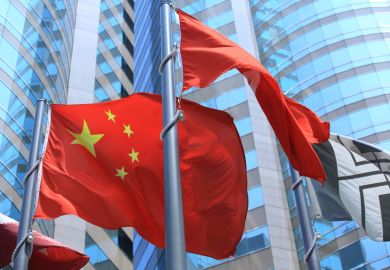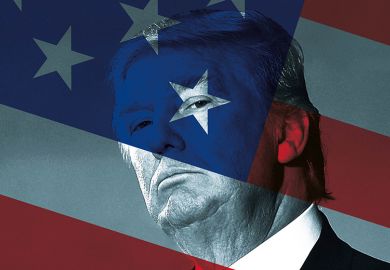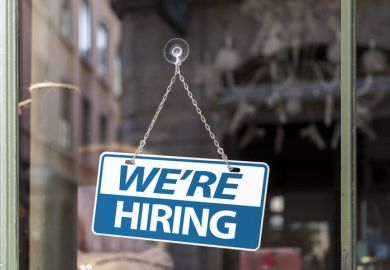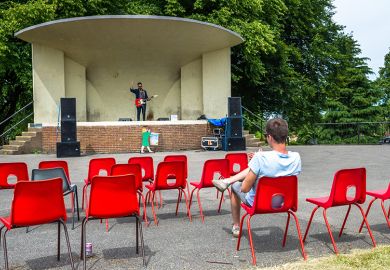Chinese universities “stand to gain” from the “anti-global” atmosphere in the US under Donald Trump, especially if they introduce reforms to make academic culture “more lively and open”.
That is the view of Gerard Postiglione, chair in higher education at the University of Hong Kong, who said that some academics and students may look to universities in China instead of those in the US in the near future.
Professor Postiglione gave a speech at HKU on 3 March entitled “Trumpism and Universities: Advantage China?”
Speaking to Times Higher Education afterwards, he said that China now has a “number of world-class universities”, is investing “great sums of money in research and development” and has the world’s third-largest cohort of international students, after those of the US and the UK.
China has 397,635 international students, according to 2015 data from the Institute of International Education, while the UK has 496,690 and the US has 1.04 million.
A cover feature in last week’s issue of THE explored the likelihood of academics based in the UK and the US moving to Australia, Canada, Singapore, Germany or the Republic of Ireland in light of the Brexit vote and Mr Trump’s election as US president.
But Professor Postiglione said that China may also capitalise on any potential brain drain from the US, noting that academics and students from the US and from the seven Muslim-majority countries affected by Mr Trump’s recent travel ban may choose to go to Chinese instead of US universities.
He also cited a bill from Mark Chelgren, a Republican state senator in Iowa, that aims to force the state’s public universities to take into account the registered political party affiliations of prospective professors when hiring, as a potential reason why some scholars may look to China.
He added that Mr Trump’s “anti-global” and populist slogan “Make America Great Again” is in direct contrast to Chinese president Xi Jinping’s mission to “deepen globalisation”.
“China stands to gain in the current atmosphere,” he said. “China has a chance to use its universities to project its soft power. US soft power has not been helped around the world by the way that the new administration has handled issues like immigration, for example.”
He added: “Since China is the main economic actor now in Asia, [students and academics] may see their future prospects as better served by studying [and working] in China.”
However, he recognised that “academic culture in China is not like academic culture in the West” and said China could “project its soft power even more if its academic culture begins to become much more lively, dynamic [and] open”.
Register to continue
Why register?
- Registration is free and only takes a moment
- Once registered, you can read 3 articles a month
- Sign up for our newsletter
Subscribe
Or subscribe for unlimited access to:
- Unlimited access to news, views, insights & reviews
- Digital editions
- Digital access to THE’s university and college rankings analysis
Already registered or a current subscriber? Login








